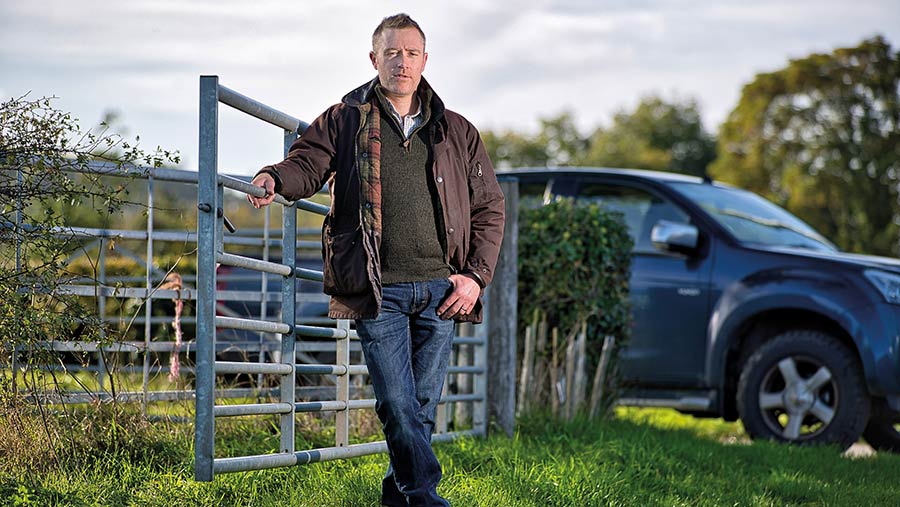Will’s World: Water quality ambitions laudable – to a degree
 Will Evans © Richard Stanton
Will Evans © Richard Stanton When was the last time you asked the person sitting next to you if you could borrow their orange colouring pencil?
For most of you, I’d guess it was a good few decades ago, when the only things you were really concerned with were whether you had corned beef or cheese sandwiches in your lunchbox, and what delights they’d be making on Blue Peter out of bog roll tubes and sticky-backed plastic when you got home from school.
But not me. I asked a fellow farmer that exact question the other day.
See also: Water company schemes to consider for your farming business
This wasn’t a random request at a livestock market or the local pub, but in a “risk mapping workshop” put on by Farming Connect, the advisory and training body here in Wales, to get all of us ready for the new regulations on control of agricultural pollution.
We’d been asked to bring along maps of our farms and some coloured pencils, so much to my seven-year-old’s displeasure I borrowed a few of hers under stern instructions not to break or lose them.
I’d foolishly assumed that green, blue, brown and red would be enough (plus a special sparkly rainbow effect one I borrowed when she wasn’t looking), but no, orange was required too. Hence my request.
Mapping ‘high-risk’ fields for run-off
What followed was a fun-filled afternoon in a tired hotel conference room, and the 30 or so even more tired farmers in attendance all had some pretty coloured maps marked faithfully with watercourses, springs, boreholes, ditches, field drains, areas of sandy or shallow soils, sites suitable for temporary field heaps of manure, and land with a slope of more than 12deg.
Not 11deg, mind you. Not 13deg, but 12deg. If only I’d brought along my trusty shatterproof protractor with my name written on it in Tipp-Ex.
This is Wales, though, a place not famed for its dryness or flatness (I’ve played rugby in a monsoon on a pitch with a bigger slope than that) so the exercise was rendered a bit pointless as almost everyone’s fields were immediately designated “high risk” for run-off.
But what’s a bit of pointlessness between friends, when it comes to government regulations. It’s not as if any of us have anything more productive to do, is it?
At least we have the maps now, and they’re ready for when we get yet another inspection.
I only hope they’ll appreciate just how neat my colouring is, and how much I’ve kept within the lines. Perhaps I’ll get a gold star.
Pollution problem
Seriously though, I get it, and I believe that all this comes from good intentions on the part of Welsh government.
To say that water quality is important is an understatement, and I’ve been as appalled as anyone by the reports on the terrible state of rivers and coastal areas throughout the UK.
I’m not convinced this will make a big difference, though. It’ll add a huge cost burden to already struggling smaller farm businesses, and a whole heap more pressure to adhere to the regulations.
But solve the pollution problem? No.
Meanwhile, throughout the UK, water companies will keep on discharging sewage at a staggeringly high rate and keep on failing to invest in infrastructure, while their bosses pick up obscenely high pay packets and bonuses every year.
If there was any justice, they’d be the ones getting a D- and a week of detention.


